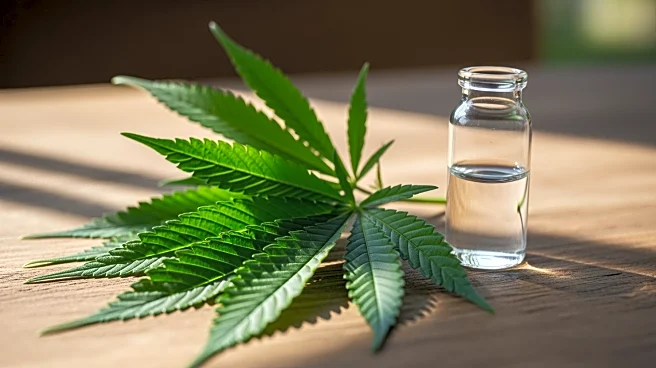What's Happening?
The hemp industry in Colorado is bracing for significant changes due to a new federal law included in a recent budget deal. The law, set to take effect in a year, will prohibit hemp or CBD products containing more than 0.4 milligrams of THC. This regulation
aims to standardize THC levels across hemp products, impacting producers and consumers in the state. Colorado, known for its robust hemp industry, will need to adapt to these changes, which may involve altering production processes and product formulations to comply with the new legal standards.
Why It's Important?
The new federal regulation poses a challenge to Colorado's hemp industry, which has been a leader in hemp production and innovation. Producers may face increased costs and logistical hurdles as they adjust to the new THC limits. This could affect the industry's growth and profitability, potentially leading to job losses or reduced investment in the sector. Consumers may also experience changes in product availability and pricing. The regulation reflects broader federal efforts to regulate cannabis-related products, influencing national industry standards and market dynamics.
What's Next?
Colorado hemp producers are expected to begin adjusting their operations to meet the new THC requirements. This may involve research and development to create compliant products, as well as lobbying efforts to influence future legislation. Industry stakeholders will likely engage with policymakers to discuss the regulation's impact and explore potential amendments or exceptions. The transition period will be crucial for businesses to adapt and maintain competitiveness in the evolving market. Monitoring the industry's response and adaptation strategies will be important for understanding the regulation's long-term effects.















